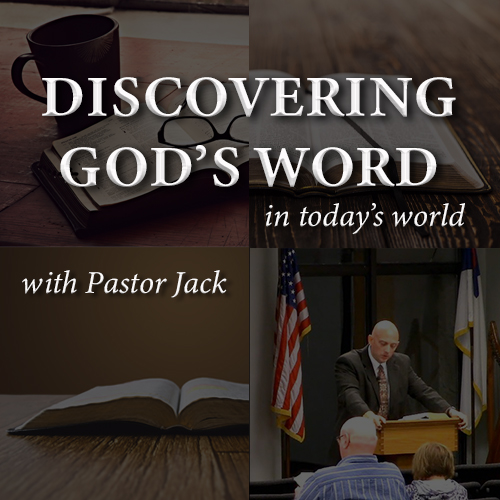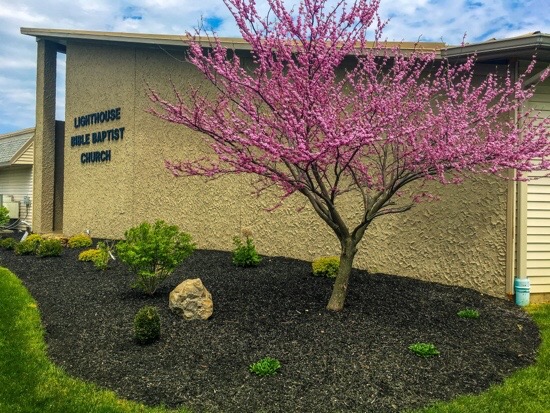
The name Jeroboam in the Bible is synonymous with sin. Twenty-two times in scripture you will hear, “Jeroboam the son of Nebat which did cause Israel to sin.” During his time, the big split happened, the ten tribes in the north broke from Judah. Jeroboam “did not let a good crisis go to waste.” Instead, he seized the opportunity to radically change worship creating “a new normal” for God’s people.
What was the sin that became a perpetual stumbling block to Israel? Jeroboam successfully set up a watered-down form of Judaism. He established high places all throughout the land and altars in Dan (North) & Bethel (south), Jeroboam made a new, convenient, and easy form of worship. You never had to leave home to go to church! This new system was not “idolatry proper” (only King Ahab and his two sons were accused of going after strange gods), but instead, a way of worshipping God that was not after due order. By spiritually separating the flock of Israel, Jeroboam solidified his humanistic government rule. When he divided the Hebrew congregation, he insured that the ten northern tribes would never enjoy a national revival or have the blessing of even one Godly king.
Before the “new normal,” God Himself established worship, He “bare Israel up on his wings and brought them to Himself” (Ex. 19:4). Eleven times God told Pharaoh to, “Let my people go that they might worship me!” God called Israel out of Egypt by a mighty hand, they were baptized unto Moses, separated unto the Rock that was Christ, and they were the “church in the wilderness.” (I Cor. 10:2-3; Acts 7:38). The Old Testament uses the words “congregation,” “assembly” and “assemble” over four hundred times. When the silver trumpets were blown “the church in the wilderness” assembled together as one flock (Numbers 10:2). Once Israel settled in the promise land God himself chose a location, Jerusalem, for the nation to worship collectively as one assembly (Duet. 12:1-11).
Assembling is important in our day. The word “Church” means, “a called-out assembly.” The New Testament uses the word “church” (“a called-out assembly”) 115 times and over 100 times it is speaking of a specific local assembly. As God liberated Israel from Pharaoh, so Christ has liberated His church from the bondage of Satan to worship together as “a household of faith,” “a temple,” “a body,” “a bride” and “a building” (Eph. 2). Likewise, our country, The United States of America was born by people fleeing to this continent from oppressive governments to worship God freely.
Jeroboam Changed Church Out of Fear.
And Jeroboam said in his heart, Now shall the kingdom return to the house of David: If this people go up to do sacrifice in the house of the LORD at Jerusalem, then shall the heart of this people turn again unto their lord, even unto Rehoboam king of Judah, and they shall kill me, and go again to Rehoboam king of Judah. (I Kings 12:26-27). So he offered upon the altar which he had made in Bethel the fifteenth day of the eighth month, even in the month which he had devised of his own heart; and ordained a feast unto the children of Israel: and he offered upon the altar, and burnt incense. (I Kings 12:27)
God promised Jeroboam the northern ten tribes (I Kings 11:29-43), but instead of making policy based in faith, he ruled out of fear. Jeroboam refused to rest his heart in faith in God’s Word. Instead, he “said in his heart,” and “devised in his heart.” When decisions are born of fear instead of faith, free worship is inhibited.
Jeroboam Changed Church To Conform To The Wisdom of Men.
Whereupon the king took counsel, and made two calves of gold, and said unto them, It is too much for you to go up to Jerusalem: behold thy gods, O Israel, which brought thee up out of the land of Egypt. (I Kings 12:28)
Driven by fear, Jeroboam sought “the counsel of the ungodly.” (Psalm 1) The bad news is that ungodly counsel works! Jeroboam got his desire to solidify a nation around himself and not God. Jeroboam’s legacy of sin would be a perpetual stumbling block to all the generations following him. He dug a spiritual ditch that no offspring could pull themselves out of. Even when Jesus was walking the same grounds almost a millennium later, the woman at the well was still confused about where the right location of worship was. Jeroboam turned real worship into a pathetic empty substitute. Israel had a godless form of religion, “…a form of godliness but denying the power thereof…” (II Tim. 3:5). Jeroboam turned Bethel “the house of God,” into Bethaven, “The house of emptiness.” (Hos. 10:5)
Jeroboam’s ungodly counsel appealed to spiritual laziness and apathy (“It is too much”). Carnal nature looks for an excuse not “to go up to Jerusalem” to worship. “It is too much!” Israel was given “a reason” not to go. “A reason” to slack off spiritually.
The sluggard will not plow by reason of the cold… (Proverbs 20:4)
“…It is too much for you to go up to Jerusalem: behold thy gods…”
“It is too much for you…,” Jeroboam offered a comfortable, convenient, and uncostly approach to Christianity. Spiritual apathy was now in vogue.
The slothful man saith, There is a lion without, I shall be slain in the streets. (Proverbs 22:13)
Jeroboam is telling us right now, “there is a virus without!” Some have a legitimate cause to fear this virus. Click here if this is you: “Are we forsaking the assembling of ourselves together?” For the rest of us, beware of the voice: “It is too much for you to go up to Jerusalem to worship!” If I am healthy enough to go to work, Walmart, Home Depot, or MacDonald’s drive through where thousands of people pass through on any given day, touching the same products and bumping into each other, then I can probably take the risk of going up into the house of the Lord. “There is a lion without,” Jeroboam says, “it is dangerous!” “It is unessential!” “It is too much for you!”
Jeroboam Changed Church by Redefining What Church Is.
And he made an house of high places, and made priests of the lowest of the people, which were not of the sons of Levi. (I Kings 12:31)
There are only three ways to change the Bible: add to it, take away from it, or redefine terms. Jeroboam redefined what church was. The church is not a content creating online business, but “a called-out assembly.” I am thankful for content. After I was saved, I listened to hundreds of preaching tapes, cd’s, and now mp3s and YouTube videos, but never one time at the end of a sermon did I say, “I have been to church!” Never, after having read a piece of fine Christian literature or having listened to beautiful sacred music, have I said, “I have been to church!” Church is what God has defined it as being, “a called out assembly.” A New Testament Church described and defined in scripture as a group of saved and baptized believers, who have voluntarily joined themselves together for the carrying out of the great commission. We see the first century church was in continual assembly as they “turned the world upside down.”
We could write a whole article about the importance of communities bonding together at assemblies such as sporting events, school functions, and rallies of different sorts. The quarantine has further separated a frustrated and divided nation. Months of physical separation do damage to any sports team, country, and marriage. So we can imagine what it is also doing to the household of faith!
When people congregate together there is unity and power. People together can do ten times what one can do! How should one chase a thousand, and two put ten thousand to flight, except their Rock had sold them, and the LORD had shut them up? (Due. 32:30). This principal is given continuously in scripture.
More than any other day and age the lost and the saved need the church of God at its full strength. God’s people today need each other and the world needs believers to be on their ‘A’ game. Riots are breaking out across the land. Suicide, drug use, anxiety, godlessness, and hopelessness is on the rise 100-fold. Calls into suicide hotlines are up over 600 percent. I read this week an article that said suicide deaths in LA County outnumbered COVID deaths.
God desires that His people would assemble, worship Him, and go about the work of the great commission.
Behold, how good and how pleasant it is for brethren to dwell together in unity! (Psalm 133:1)
I was glad when they said unto me, Let us go into the house of the LORD. Our feet shall stand within thy gates, O Jerusalem. (Psalm 122:2)

